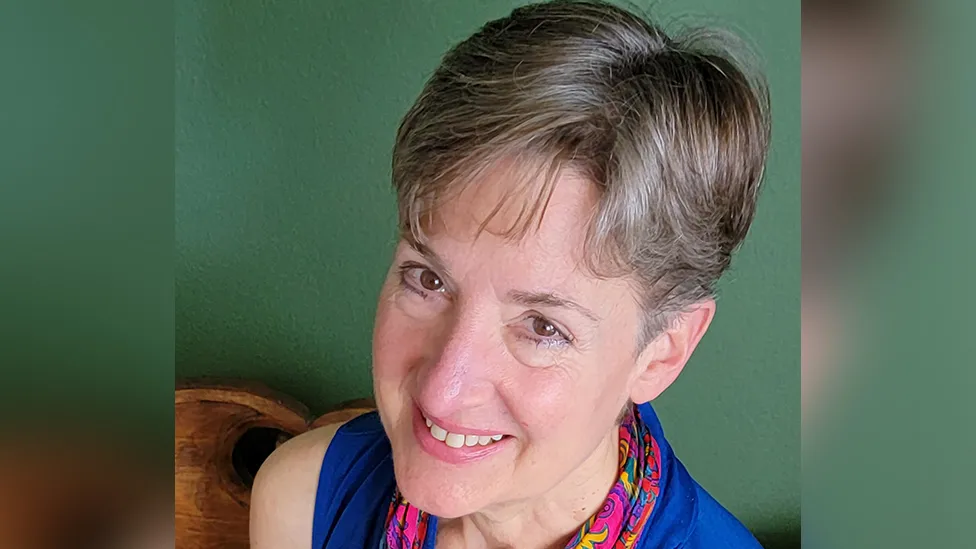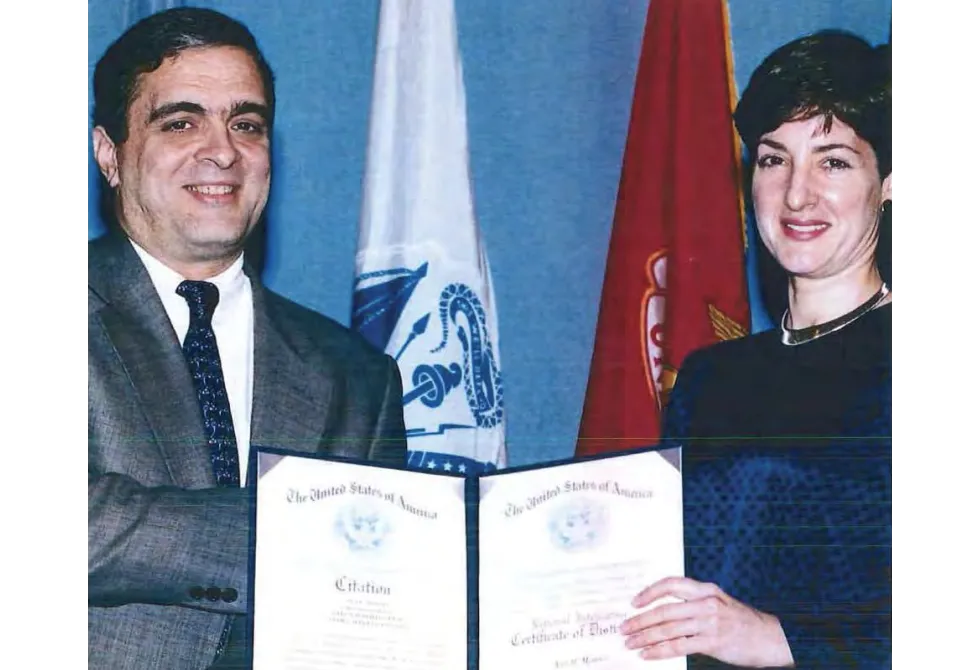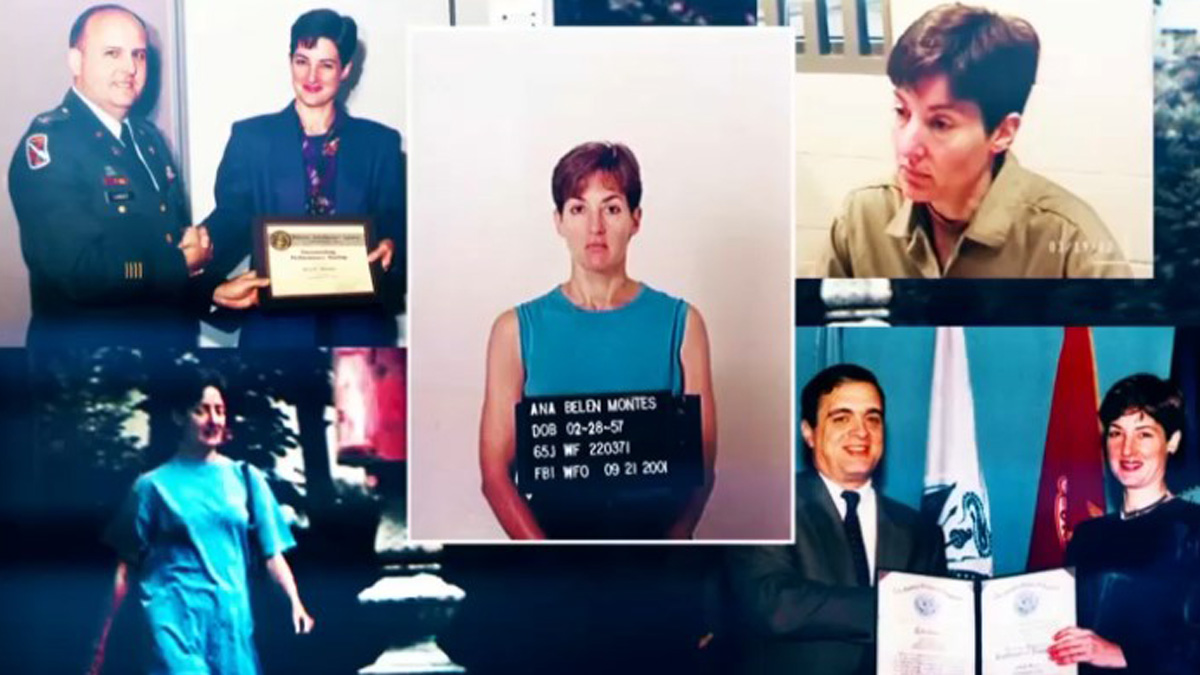World
How Cuban Spy Used Incredible Memory To Betray US

Ana Belén Montes poses for a photo shortly after her release from a 20-year prison sentence. Her brown hair is streaked with grey, and she is approximately 66 years old.
There was little evidence that Montes had spent years as a covert Cuban spy embedded deep within the US government. Or that she was formerly regarded as one of the most dangerous intelligence operators targeting the country.
That, according to experts, is what made her the ideal spy.
Ana Montes was caught on September 21, 2001, and was later found guilty of plotting to spy on the United States.
US Intelligence Searching For Decades
For nearly a decade, US intelligence authorities had been looking for a Cuban mole inside the government, but determining who was sending sensitive information to the Cubans proved to be a herculean effort.
“It truly is a needle in a haystack,” said Pete Lapp, a former FBI agent who, along with his partner, Steve McCoy, was part of the team that proved Montes was a Cuban spy.
Lapp and his team were tasked with finding and eliminating the mole. To complicate matters further, Mr. Lapp claimed that the Cubans also attempted to conceal Montes’ gender by implying that the spy was a man with high-level clearance, thus broadening the pool of prospective targets.
“It would have been a lot easier if we had known we were looking for a woman,” he admitted.
The FBI was looking for a lady and a top US intelligence official in Cuba and Central America.
The Cuban Queen
Cuba played a long game with Montes. Mr. Lapp says that she was asked to spy for them before graduating from graduate school. So, she became an “operative of the Cuban intelligence service” and joined the US Defense Intelligence Agency.
“She did an excellent job of being near-perfect, and everything she accomplished as an analyst simply served to build a wall of security around her,” he explained.
Ana Montes moved up in the US intelligence services. Before becoming a senior intelligence operative studying Cuba, she first worked on a portfolio for El Salvador and Nicaragua. Her expertise earned her the title “Queen of Cuba” within the agencies.
She also sent some of the most sensitive information about the country to a foreign government that was against it for more than 17 years.
On The Run for 17 Years
“One of the reasons I think she never got caught was she primarily memorized the knowledge that she took away,” said Jim Popkin, author of Code Name Blue Wren, which chronicles Montes’ climb through the ranks and eventual capture.
“She had a day job where she sat silently, studiously, and memorized as many sensitive documents as possible. Her nocturnal duty was to go home, type it up on a Toshiba laptop, encrypt it, and send it to her handler.”
Instead of working for money, Montes eventually admitted to investigators that she spied on the US because she opposed her government’s interventionist actions in Central America and Cuba.
Mr. Popkin said, “She was especially dangerous because she told the real names of American spies in Cuba.”
That information alone could have put lives in danger, but Montes also revealed the existence of a multibillion-dollar stealth satellite used by the US to spy on Russia, China, and Iran.
“That’s why intelligence officers call her one of the most damaging spies in American history and, in my opinion, the most damaging female spy we’ve ever had,” Mr. Popkin added. By 2000, intelligence agencies suspected Montes of being a spy, and Mr. Lapp and his team narrowed down on her as a suspect.
An International Spy
“Let’s not focus on catching her in the act of spying,” I insisted. “Let us first ensure that we have the proper individual,” Mr. Rapp stated.
After looking for the mole for years, Lapp and his team finally found him over Memorial Day weekend in 2001. They went to Montes’ house and found a laptop under her bed with secret information from the 1990s.
“I thought, holy [expletive], holy [expletive],” said Mr. Lapp, whose inquiry will be detailed in the upcoming book Queen of Cuba.
Montes receives a National Intelligence Certificate of Distinction from CIA Director George Tenet.
Leading the compartmentalized life of a spy meant lying not just to the nation’s highest intelligence organizations but also those closest to her, including her family.
The Cuban Queen
Her sister, Lucy, was one of four close family members who worked with the Federal Bureau of Investigation. The day Montes was caught, the rest of the world discovered she was a spy for the Cuban government.
Mr. Popkin talked to the family for his book, and he said that the family’s anger at her betrayal was mixed with relief when she was sent to prison.
“It did give [Lucy] some solace just to understand a little bit more about her sister and why their once-close connection had deteriorated over the years,” he added.
Ana Montes was released on January 6 after serving most of her 25-year term. Montes said she wishes to live a “quiet and private existence” now that she is out of prison and back in Puerto Rico. However, within hours of her release, Montes stated that she was still thinking about Cuba.
“I encourage anyone who wishes to focus on me to do so on significant subjects, such as the major problems confronting the Puerto Rican people or the United States’ economic embargo on Cuba,” she said in a statement provided to BBC News by her lawyer, Linda Backiel.
“Who has asked the Cuban people in the previous 60 years if they want the United States to enforce a strangling embargo that causes them to suffer?”
But Montes’ release was a setback for Mr. Lapp and the men and women who had worked to bring her to justice for years.
“I knew this day was coming, but that doesn’t make it any less painful,” he added.
SOURCE – (BBC)
Celebrity
Bernice Johnson Reagon, Whose Powerful Voice Helped Propel The Civil Rights Movement, Has Died

Nashville, Tennessee – Bernice Johnson Reagon, a musician and scholar who utilised her rich, powerful contralto voice to support the American Civil Rights Movement and global human rights campaigns, died on July 16, according to her daughter’s social media post. She was 81.
Reagon was best known as the founder of Sweet Honey in the Rock, an internationally recognized African American female cappella group that she managed from 1973 until her retirement in 2004. The Grammy-nominated group’s purpose has been to educate, empower, and entertain. They sing songs from various genres, including spirituals, children’s music, blues, and jazz. Some of their original compositions pay tribute to American civil rights leaders and foreign liberation movements, such as the struggle against apartheid in South Africa.
Bernice Johnson Reagon, Whose Powerful Voice Helped Propel The Civil Rights Movement, Has Died
“She was incredible,” said Tammy Kernodle, a prominent professor of music at Miami University with a focus on African American music. She referred to Reagon as someone “whose divine energy, intellect, and talent all intersect in such a way to initiate change in the atmosphere.”
According to an obituary posted on social media by her daughter, musician Toshi Reagon, Reagon’s musical activism began in the early 1960s when she worked as a field secretary for the Student Nonviolent Coordinating Committee and became an initial member of the Freedom Singers. In 2010, the trio reassembled and was joined by Toshi Reagon to play for then-President Barack Obama in a White House performance series televised nationally on public television.
Reagon was born in 1942 in Dougherty County, Georgia, outside of Albany. In the early 1960s, he attended music workshops at Tennessee’s Highlander Folk School, an activist training ground. At an anniversary celebration in 2007, Reagon explained how the institution helped her recognize her musical history as unique.
“From the time I was born, we were always singing,” Reagon told me. “When you’re in a culture and, quote, ‘doing what comes naturally to you,’ you don’t notice it. I believe my work as a cultural scholar, singer, and composer would have been very different if someone had not drawn my attention to the people who need songs to stay alive, to keep themselves together, or to boost the energy in a movement.”
Reagon was arrested and dismissed from Albany State College after participating in a civil rights march. She eventually graduated from Spellman College. While a graduate student of history at Howard University and the vocal director of the D.C. Black Repertory Company, she founded Sweet Honey in the Rock.
In 1965, Reagon recorded her debut solo album, “Folk Songs: The South,” for Folkways Records. She joined Atlanta’s Harambee Singers as a founding member in 1966.
According to the Smithsonian, Reagon began working with the institution in 1969 when she was asked to organize and manage a 1970 festival program called Black Music Through the Languages of the New World. She went on to curate the African Diaspora Program and establish and lead the Program in Black American Culture at the National Museum of American History, where she ultimately became curator emeritus. She produced and played on many Smithsonian Folkways recordings.
Reagon was a distinguished professor of history at American University in Washington for a decade, commencing in 1993 and ending as a professor emerita.
According to Kernodle, we think that music has always been a component of civil rights activity, but it was people like Reagon who made music “part of the strategy of nonviolent resistance.” They brought those songs and practices from within the church to the streets and jail cells. And they popularised such songs.”
Bernice Johnson Reagon, Whose Powerful Voice Helped Propel The Civil Rights Movement, Has Died
“What she also did that was very important was that she historicised how that music functioned in the civil rights movement,” according to Kernodle. “Her dissertation was one of the first real studies of civil rights music.”
Reagon won two George F. Peabody Awards, including one for her role as lead scholar, conceptual producer, and host of the Smithsonian Institution and National Public Radio series “Wade in the Water: African American Sacred Music Traditions.”
She has received the Charles E. Frankel Prize and Presidential Medal for distinguished contributions to public awareness of the humanities, a MacArthur Fellows Program award, and the Martin Luther King Jr. Centre for Nonviolent Social Change’s Trumpet of Conscience Award.
SOURCE | AP
Sports
Athletes Enjoying Their First Days At The Giant Olympic Village Ahead Of The Paris Games

Turner Sports hopes to continue its long-standing relationship with the NBA.
Warner Bros. Discovery informed the league on Monday that it will match Amazon Prime Video’s $1.8 billion annual bid. Turner has had an NBA package since 1984, and games have been broadcast on TNT since the network started in 1988.
“We studied the offers and accepted one of them. This will allow fans to continue to experience our unequaled coverage, including the greatest live game productions in the business, as well as our legendary studio shows and talent, as we build on our proven 40-year commitment for many more years,” WBD stated. “We submitted our matching paperwork to the league today.” We are looking forward to the NBA completing our new contract.”
paris | AP News
Athletes Enjoying Their First Days At The Giant Olympic Village Ahead Of The Paris Games
The NBA Board of Governors approved the league’s 11-year media rights deals with Disney, NBC, and Amazon Prime Video at its meeting in Las Vegas on Tuesday. WBD received all three contracts on Wednesday, beginning the five-day clock for deciding whether to match.
The new deals, for $76 billion, will begin with the 2025-26 season and entail a game being shown or streamed nationally every night during the second half of the season.
The Prime Video package would have offered games on Thursday night after it finished carrying NFL games. The other nights were Friday and Saturday.
TNT would most likely air games on Thursday, with the other nights being streamed on Max.
Warner Bros. Discovery CEO David Zaslav warned at an RBC Investor Conference in November 2022 that Turner and WBD “don’t have to have the NBA.”
Warner Bros. Discovery and the league were unable to negotiate an agreement during their exclusive bargaining period, which ended in April. Zaslav and TNT Sports Chairman/CEO Luis Silberwasser have recently announced that they intend to match one of the agreements.
“During our four-decade collaboration with the NBA, we have consistently provided exceptional coverage for basketball fans. WBD stated that they behaved in good faith to offer strong proposals that were fair to both parties throughout exclusive and non-exclusive negotiations to maintain their long-standing collaboration. “Regrettably, the league notified us of its intention to accept other offers for the games in our current rights package, leaving us to proceed under the matching rights provision, which is an integral part of our current agreement and the rights we have paid for under it.”
NBC and WBD would alternate broadcasting one of the conference finals series. ESPN and ABC will continue to broadcast the league’s top package and will host conference finals and the NBA Finals each year.
According to people familiar with the negotiations, Amazon’s offer contained a mechanism for paying many years in advance into an escrow account, which many thought would be difficult to match. However, WBD has informed the league that it has the financial resources to do so.
“The Ringer’s” Bill Simmons originally mentioned the Amazon provision on “The Town” podcast.
People talked to the A.P. anonymously because they were not at liberty to discuss such serious topics.
WBD pays $1.4 billion per season under the existing nine-year contract, which expires after next season.
WBD is making a large financial investment, but it is necessary. Without the NBA, it would have struggled to charge its present subscriber fees to cable and satellite companies.
Retaining the NBA would also ensure that the popular “Inside the NBA” show will continue. Charles Barkley was dismissive of WBD’s negotiation position and did not believe it would match. Barkley revealed at the end of this season that he planned to retire following the next season.
The village is located in the Saint-Denis district, best known for hosting the Stade de France, home to France’s national soccer and rugby teams. It is located in a once run-down district that has been converted into a dynamic international hub for the Paris Games from July 26 to August 11, as well as the Paralympics from August 28 to September 8.
“It’s great to see so many different countries here,” U.S. rugby sevens center Lucas Lacamp said Monday.
The village has a huge dining hall with several food stations catering to diverse tastes worldwide, a large gym, training grounds for various sports, a polyclinic, prayer rooms, and an anti-doping center.
“I was definitely looking forward to the food court, I won’t lie about that,” said New Zealand rugby sevens player Risaleanna Pouri-Lane, who won the women’s gold medal in Tokyo. “It has been pretty cool. We’ve got a couple of days to soak up the entire village and Olympic environment in Paris.”
Andrew Knewstubb, a silver winner in men’s rugby in Tokyo, emphasized the stark contrast between pandemic-hit Tokyo three years ago and Paris.
“The most noticeable thing is that people are not wearing masks in Paris,” Knewstubb said, adding that he loves how athletes can now greet one other or walk up and swap pins “without the hesitation of Covid.”
Athletes live in five residential zones named after famous Parisian landmarks: Abbesses, Bastille, Dauphine, Étoile, and Fêtes. With environmental protection in mind, the eco-friendly community uses electric automobiles to transport athletes. Pouri-Lane enjoyed riding one of the several bicycles available to athletes.
Anna Meares, a former track cycling star, has four Olympic medals, two of which are gold. Meares is now the Australian team’s Chef de Mission, and he stated that decisions have been made about the team’s residency in the hamlet.
“There was a lot of learning to take out of Tokyo, that played in the decisions we have made in our set up in Paris,” she told me.
Paris | AP news Image
Athletes Enjoying Their First Days At The Giant Olympic Village Ahead Of The Paris Games
One of them was more significant than it may appear.
“We have kept our barista,” she stated. “One big question I had when I took on this role in Paris was, ‘Why was the barista so popular?'” And that was because it established a social hub for the athletes.
Meanwhile, the American men’s rugby sevens squad is ready for a big game on Wednesday against host France, which has probably the best scrumhalf in the world in Antoine Dupont.
“The preparation has been good. “They’ve taken great care of us in Paris; the fields and facilities were excellent,” said U.S. captain Kevon Williams. “Things have been going smoothly for us. “We’re prepared for the moment.”
That moment will be met with the roar of an 80,000-person sell-out crowd at the Stade de France. Williams and his teammates should enjoy a memorable experience at France’s iconic national stadium, but beach volleyball players have possibly the best location of all.
They play their matches against the backdrop of the Eiffel Tower, which, as famous sites go, is difficult to beat.
“I am not being biased, but I believe it is the best venue of them all,” Artacho del Solar stated. “It’s going to be amazing.”
They got a taste of what was coming when they watched a video of the Australian men’s training session.
“We know it’s going to be electric, exciting, as beach volleyball always is,” said Clancy, whose first assignment during her first practice session was to test the wind, sand depth, and grain quality.
SOURCE | AP
World
Too Soon For Comedy? After Attempted Assassination Of Trump, US Politics Feel Anything But Funny

Political jokes: is it too soon?
Many quarters responded with a loud yes at midweek, days after an assassination attempt on Republican former President Donald Trump shook the nation over decades of political violence in the United States.
Several late-night shows that rely on political humor instantly modified their plans, with Comedy Central’s “The Daily Show” canceling its Monday show and intending to broadcast from the Republican National Convention in Milwaukee this week. Its host, Jon Stewart, and his guests gave sad monologues.
By Tuesday, the comic rock duo Tenacious D, comprised of Jack Black and Kyle Gass, had canceled the remainder of their global tour “and all future creative plans” after Gass proclaimed onstage his birthday wish: “Don’t miss next time.” Gass apologized.
Too Soon For Comedy? After Attempted Assassination Of Trump, US Politics Feel Anything But Funny
Democratic President Joe Biden, no stranger to criticizing Trump, contacted his wounded competitor, paused his political advertisements and messaging, and urged the country to “cool” the rhetoric.
So, if comedy is tragedy plus time, when is joking acceptable again? And who gives a thumbs up, given that the shooter who targeted Trump also killed former fire chief Corey Comperatore while protecting his family?
The attempted assassination on Saturday, or any of the bloodshed that has afflicted the United States since its inception, is not funny. Trump was smacked in the ear while speaking to rallygoers in Pennsylvania. A Trump supporter and the gunman were dead, while two onlookers were injured. The attack sparked severe concerns about security shortcomings. It was the most recent example of political violence in America, where attacks on politicians date back to at least 1798 when two legislators from opposite parties brawled in the United States House.
Other examples abound in history texts, but the list from this century is particularly striking. Former Arizona Representative Gabby Giffords, D, was shot in the head in 2011. Republican Rep. Steve Scalise of Louisiana, the current House majority leader, was shot and badly injured in 2017. On January 6, 2021, a mob of Trump supporters invaded the US Capitol, preventing Congress from certifying Biden’s election. Paul Pelosi was bludgeoned at his home in 2022 by a guy looking for his wife, former House Speaker Nancy Pelosi.
In addition to that, unwavering fears about Biden’s fitness for office following his catastrophic debate performance, Trump’s conviction on 34 felony counts, and American politics in 2024 appear anything but hilarious.
However, political comedy is as old as politics and administration.
It softens the impact of democratic decisions and is a powerful tool for politicians aiming to alleviate or increase concerns about themselves or their opponents. And in recent years, Trump has been the focus of more jokes than anyone else. According to a 2020 study by George Mason University’s Center for Media and Public Affairs, late-night hosts made 97% of their jokes about Trump.
“It’s never too soon, unless it’s not funny,” Alonzo Bodden, a 31-year-old stand-up comedian, said in a phone interview Wednesday. He is not a Trump supporter but stated that comedians “will always make it funny no matter what happens.” That is what we do. “It is how we communicate.”
“In this case, Donald Trump is such a character and the fact that he wasn’t killed, the jokes started immediately,” said Bodden. “And I don’t believe he minds. He’s one of those persons who is always happy to be mentioned.”
Humor humanizes large figures.
Perhaps most effectively, political humor can make arrogant leaders appear more human or at least self-conscious.
Consider “covfefe,” Trump’s strange middle-of-the-night tweet in 2017 that went viral, prompting Jimmy Kimmel to despair that he’ll never write something funnier. “Make the Pie Higher,” a poem by late Washington Post cartoonist Richard Thompson, was composed solely of President George W. Bush’s botched words and was published for his inauguration in 2001.
“It is a very complicated economic point I was making there,” Bush said with a smirk at the Radio and Television Correspondents Dinner a few months later. “Believe me, what this country needs is taller pie.”
Before the debate, Biden attempted to use humor to bring the age issue to the forefront, but it became evident that the concern was more about his cognitive ability. “I know I’m 198 years old,” Biden declared, to wild laughter and clapping.
Too Soon For Comedy? After Attempted Assassination Of Trump, US Politics Feel Anything But Funny
Humor is such an effective campaign tactic that candidates flock to guest appearances on late-night shows, which have risen in political prominence. However, following the assassination, a pause settled over everything, as indicated by Stewart’s serious address on Monday.
“None of us knows what’s going to happen next other than there will be another tragedy in this country, self-inflicted by us to us, and then we’ll have this feeling again,” Stewart told the crowd.
“Though I could just as easily start the show moaning on the floor,” he laughed, “because how many times do we need to learn the lesson that violence has no role in our politics?”
As is customary for social media, it was acting more freely. “I think it’s ironic that Trump almost died from a gun today because he was too far right-leaning,” comedian Drew Lynch remarked on YouTube. “Alright. That’s all I have. I believe my neighbors might be listening.”
SOURCE | AP
-
World2 weeks ago
Former President Trump Survives Being Shot at Pennsylvania Rally
-
Tech4 weeks ago
Huawei Launches 5G-A Pioneers Program at MWC Shanghai 2024: Paving the Way for a Connected Future
-
Tech4 weeks ago
ChatGPT Answers Undiscovered Questions and Outperforms Students.
-
Sports4 weeks ago
NBA Draft: Kyle Filipowski Withdraws Unexpectedly From The First Round
-
News4 weeks ago
US Supreme Court Rejects Drug Deal that Protects the Sackler Family
-
Health4 weeks ago
US Health Agency Issues Dengue Virus Infection Warning



















